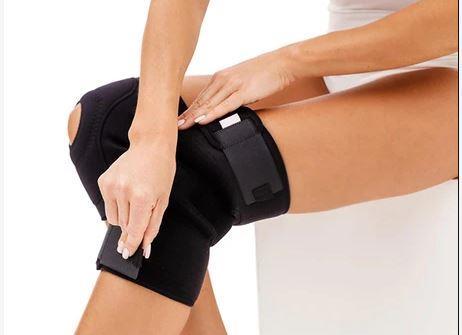Exploring the Intersection of Knee Support for Sports and Artificial Fingers
Whatever your goal as an athlete, paying attention to your body is critical. Take your legs, for example. Your knees are most likely the main point of your chosen sport, whether running, football, ball, skiing, hiking, or tennis.
The constant thumping of your body weight crouching down during these workouts may result in excessive strain and wear of the ligaments, tendons, and muscles around your knee joints. As a result, this might result in injuries or injury and significant knee pain, rendering you unsuitable to play or stroll with a normal stride in the absence of adequate emergency treatment and relaxation.
For new athletes, it is essential to remember that the most effective safety precautions for knee pain and sports injuries are the most basic:
• Wear Knee Support for Sports Warm up for at least 10 minutes before your movement

• Gradually increase your speed
• Remember to 'cool down after a strenuous exercise or race to enable your body to recover from the effort
When should you see a specialist for knee wounds?

Pulled muscles or strains are joined during a beginner athlete's first training stage or an expert athlete's very demanding way of life. Most of them are minor difficulties that may be managed with adequate rest, cold packs, or over-the-counter pain medicines.
Regardless, some high-impact sports workouts, such as football and long-distance running, can result in more severe injuries, such as a ruptured tendon or knee ligament, kneecap separation, fractures, tendonitis, and so on.
Some common side symptoms of a knee sprain or mild injury include swelling and redness, popping or crunching sounds when you flex the knee, and inability to heal it.
However, you should schedule an appointment with the specialist as soon as possible if:
• You see an indisputable expansion or a noticeable distortion in your knee or leg
• You are unable to stand because your knee is unable to support your weight
• Despite the pain and swelling, you have a temperature
• Your legs seem weak, or you suspect your knee will 'give out.'
Injured or unable to run may be de-motivating and disheartening for any athlete. However, if you listen to your body and wait until you have recovered sufficiently to resume playing or running, you may avoid long-term knee pain and even surgery.
Caring for Your Knees, Post Injury
Protracted recovery periods following a knee surgery may result in a prolonged delay and frustration while your body adjusts. Being optimistic and proactive may simplify or even speed up this cycle. As an example:
• Monitor your progress and inform your primary care physician if you have pain or fever.
• Ensure you receive enough lean protein and fresh veggies in your diet.
• Limit your booze, espresso, and soft drinks intake.
• Use relaxation and survival techniques like contemplation and representation.
• When you need assistance, ask for it, and try to get enough rest.
How can artificial fingers help athletes?
Sports have always been a platform for development, pushing the boundaries of human capability to achieve new levels of execution. Shouldn't anything be mentioned regarding athletes who have lost digits due to accident or removal? How can they compete at the same level as their partners? This is where artificial fingers come in.
Artificial fingers are prosthetic devices that replace missing fingers and restore hand function. They come in various forms and sizes, ranging from basic snares and hooks to more advanced
gadgets that mimic the look and feel of human fingers. Artificial fingers may be down-altering for athletes, allowing them to grasp, catch, and toss with more precision and control.
Baseball is one sport where prosthetic fingers have had a significant impact. The ability to handle and toss the ball quickly and precisely is critical in a game where every millisecond counts. This might be a difficult exam for players who have lost digits. However, with prosthetic fingers, individuals may regain the elegance required to perform at a high level.
Rock climbing is another game where artificial fingers have had a significant impact. Even a single lost finger may substantially affect a game where grip strength is crucial. Climbers, however, can keep up with their grasp and rise higher than ever before with the help of prosthetic fingers. Maureen Beck, a skilled climber born without her left hand, has used artificial fingers to conquer some of the world's most challenging routes.
In any event, counterfeit fingers can benefit more than just elite athletes. Individuals who have lost fingers due to injury or illness can use prosthetic devices to stay active and participate in sports and other proactive activities. From golf to tennis to weightlifting, counterfeit fingers may have a tangible impact on those who like being busy.
Original Source

